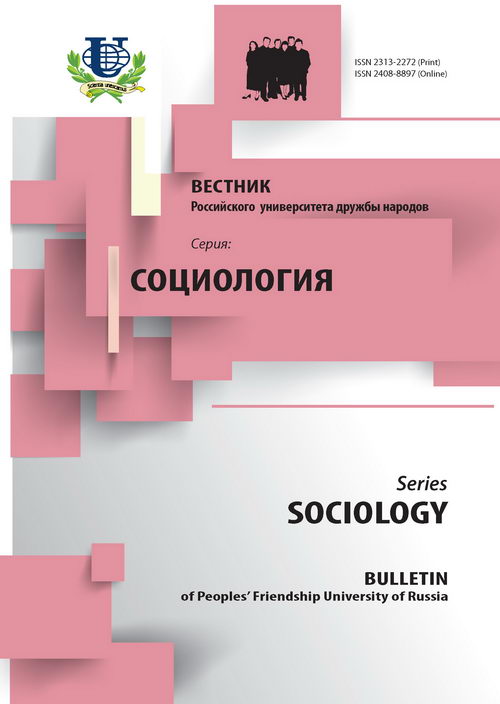Russian students’ main fears: the results of an empirical study
- Authors: Narbut NP1, Trotsuk IV1
-
Affiliations:
- Peoples’ Friendship University of Russia
- Issue: No 4 (2013)
- Pages: 66-78
- Section: Articles
- URL: https://journals.rudn.ru/sociology/article/view/6333
Cite item
Full Text
Abstract
The article presents the second part of the sociological study of fears, the first results of which were published in the previous issue of the journal. The authors briefly summarize the major formats of the conceptualization and empirical interpretation of the concepts ‘value orientations’ and ‘fears’, described in detail previously, and show how they can be used in representative sociological surveys to identify the fundamental values and behavioral patterns through the respondents’ fears and routinized optimal strategies to overcome socially and psychologically uncomfortable situations. On the results of the survey conducted in the Peoples’ Friendship University of Russia the authors propose to ‘measure’ fears by the following sets of questions: students’ life priorities; the repertoire of fears of a young person; the general level of anxiety and strategies to overcome uncomfortable situations, etc. (and the distribution of answers to the questions in each set can be analyzed in the light of socio-demographic and other differences). The results of the study, in particular, showed that the students dominant fear is the fear to lose their loved ones due to the impressive number of social risks that are considered as actual threats. Almost every second respondent evaluates his emotional state as restless and anxious, but seldom follows a specific behavioral strategy to overcome an uncomfortable situation although in the case of a strong fear he would ask his closest people for advice and support.
About the authors
N P Narbut
Peoples’ Friendship University of Russia
Email: npnarbut@rambler.ru
Sociology Chair
I V Trotsuk
Peoples’ Friendship University of Russia
Email: irina_trotsuk@rambler.ru
Sociology Chair
References













